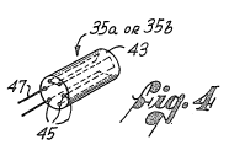ChrioN
Well-known member
...and the new URL is http://mnats.net/JE-990.html
sbranco said:Built two doa's from the parts list posted before. Though I used 62K resistors for R10 and R11 which are supposed to be for 24V, I supplied 18V and it appears to work fine. If you plan on 18V use 42.2K resistors, for 15V - 33.2K and 12V - 28K.
One doa worked and one did not. Fried R7 on the one that did not work.
Soeren_DK said:I have some problems with the 990 DOA.
The R7 resistor on the DOA started to burn and I turned it off. I can't see any problems on the PCB but maybe you out there have an idéa what to look after.
Cheers
Soeren
Sredna said:Are CR9/10 (diodes) thermally bonded to Q8/9 on your DOAs?
Check also for occilation.
Oh, and in which cirquit do you use the 990?
In a API312-ish circuit they're tend to blow.
Whoops said:Sredna said:Are CR9/10 (diodes) thermally bonded to Q8/9 on your DOAs?
Check also for occilation.
Oh, and in which cirquit do you use the 990?
In a API312-ish circuit they're tend to blow.
Hi Sredna,
I will check the diodes, thanks.
How do I check for oscillation?
Yes, I'm using them in and API 312 type circuit, I know the 990 is supposed to be used with a lower ration input transformer, although I'm waiting for 2x 2520 type opamps I decided to try these in the meanwhile as I had them for a long time in a drawer and never got a chance to try them. They sounded really good (even with a 1:10 input transformer).
The strangest thing is why it's only the same one that burns R7? The other one is completely fine, if the problem is from the 312 circuit shouldn't both of them blow? An why only and always R7?
thanks

saint gillis said:I bought on ebay some axial inductors using the same kind of ferrite as in the 990 20µH, and rewired them radially as in the 990C :
Otherwise I think you could use any kind of inductor but others might add deeper considerations on the subject, like importance of the ferrite core, etc.
saint gillis said:So you have to test and measure,but I'm not sure the value is critical, others might correct me..
I'd say reasonable specs for the inductors are 15 to 25 uH